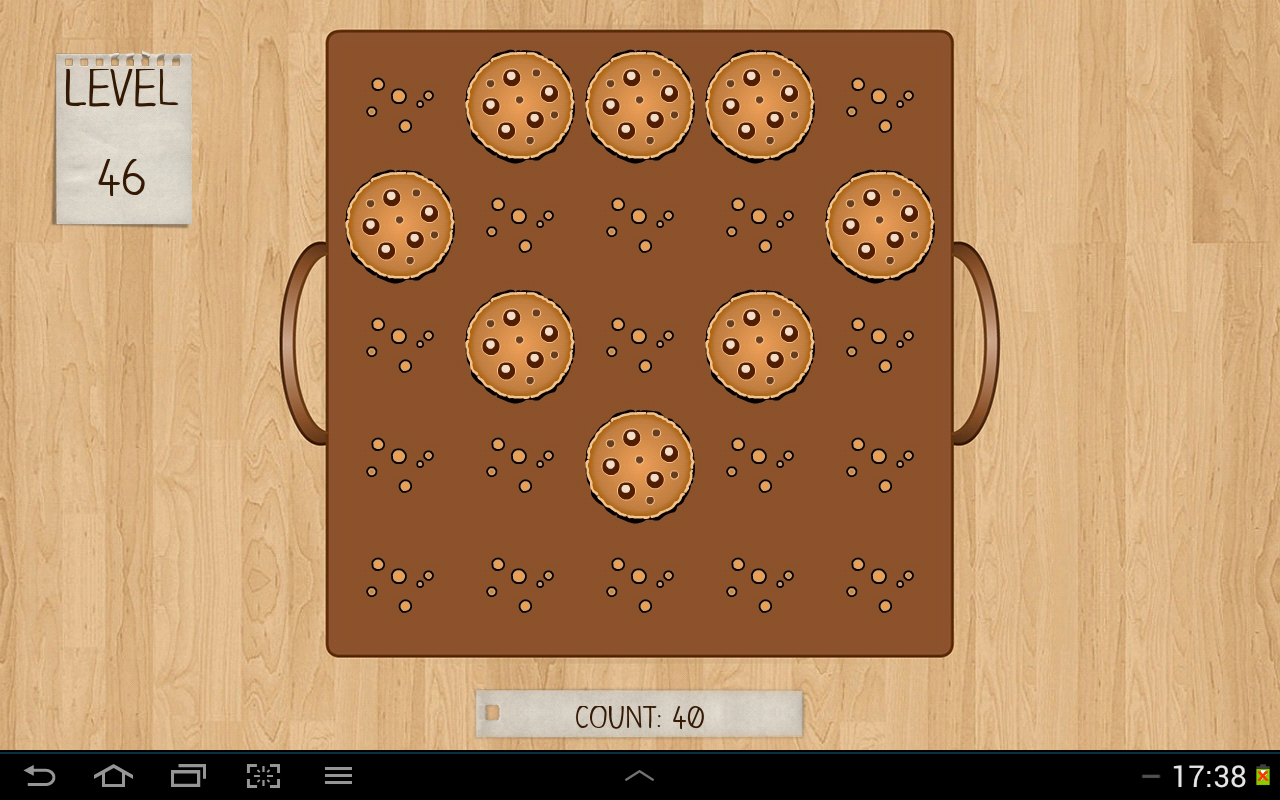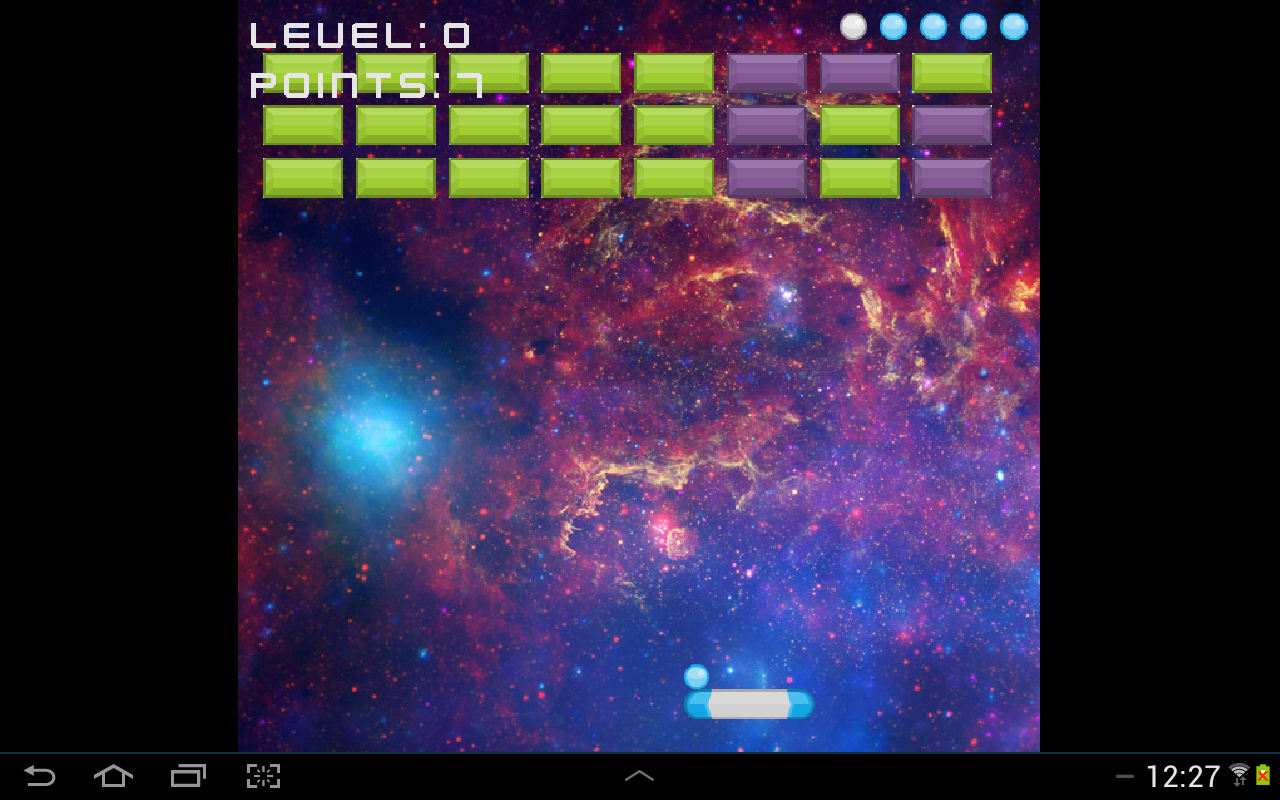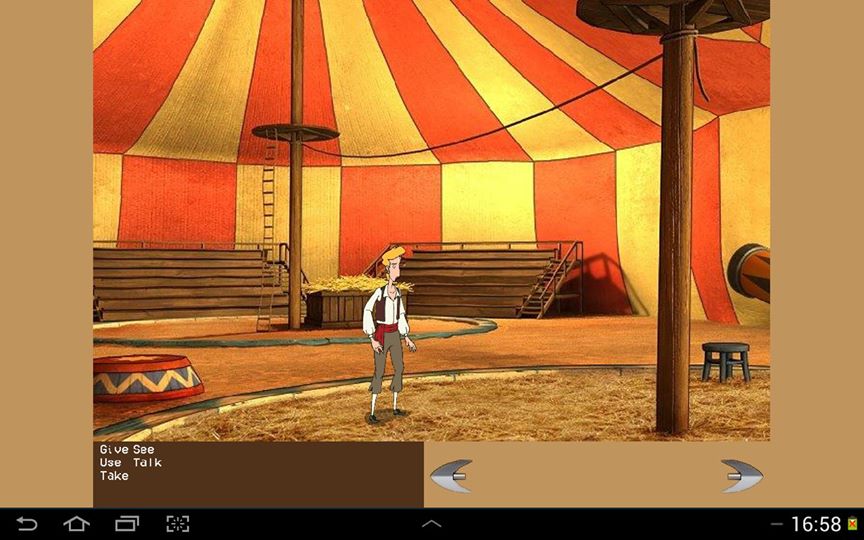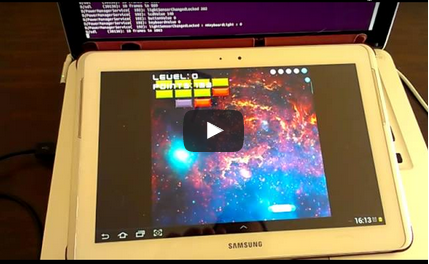Android
,
FRP
,
Functional Programming
,
Functional Reactive Programming
,
Game Programming
,
Games
,
Haskell
,
Magic Cookies
,
Reactive
,
Yampa
Magic Cookies released on Google Play
We are pleased to announce that Magic Cookies! is now available on Google Play. The rules are simple: your objective is to remove all the cookies from the tray, but be careful: touching any position on the tray will toggle it, and also the one above, below, to the left and to the right. New cookies will appear where there were none, and existing cookies in those positions will disappear. Are you smart enough?
...
FRP
,
Functional Programming
,
Functional Reactive Programming
,
Game Programming
,
Games
,
Haskell
,
Kinect
,
Open Source
,
Reactive
,
Yampa
Shake your lambdas with Haskell and Kinect
A new version of the game Haskanoid, with Kinect support, has just been made available.
...
Android
,
FRP
,
Functional Programming
,
Game Programming
,
Games
,
Haskell
,
Yampa
More Haskell games, graphic adventure engine, running on Android
We are extremely happy to announce that we now have several Haskell games working on Android, including our Graphic Adventure engine. Also, we have just begun beta-testing one of the games with real users via Google Play (aka. the Android Market).
...
Android
,
FRP
,
Functional Programming
,
Functional Reactive Programming
,
Game Programming
,
Games
,
Haskell
,
Parallel Haskell
Par thy Android - A short followup on "60 FPS to 500"
Last week we published a blog post briefly outlining several steps of optimization of a Haskell game. In the article, the last two steps, which referred to parallelism and concurrency respectively, were inverted, making it sound like the Android version was using the parallel library. This was not the case: parallelism was the last change to be introduced chronologically, and we had never tried that on Android.
...
Android
,
FRP
,
Functional Programming
,
Functional Reactive Programming
,
Game Programming
,
Games
,
Haskell
,
Reactive
,
Yampa
From 60 Frames per Second to 500 in Haskell
Haskell is often advertised as fast, easy to parallelize and to optimize. But how much of that is really true? We are going to demonstrate it using a game we are building, including how many changes we had to introduce to increase the game speed by 700% on desktop, how we managed to go from increasing memory consumption in the order of hundreds of megabytes down to constant memory consumption of only 3MB. We’ll also see the impact it had on Android.
...
Android
,
FRP
,
Functional Programming
,
Functional Reactive Programming
,
Game Programming
,
Games
,
Haskell
,
Open Source
,
Reactive
,
Sdl
,
Yampa
Declarative Game Programming -- slides, videos and code
Earlier this month, Henrik Nilsson & Ivan Perez presented a tutorial at PPDP 14 on Declarative Game Programming.
The goal was to show how real game programming is possible in a purely functional, declarative way. One way of doing so, seeing games as networks of interconnected signals and signal transformers, results in clear, reusable, modular code.
To illustrate these ideas, a small but realistic game was demonstrated, featuring many of the complex elements found in arcade games: SDL graphics and sound, Wiimote controller, and differentiated subsystems for rendering and sound, game input, physics/collisions, game logic, etc. The game has several levels, each with its own background and music.
To help others interested in functional game programming, all the talk material have been made available, including the slides and the full game code.
...
Android
,
FRP
,
Functional Programming
,
Functional Reactive Programming
,
Game Programming
,
Haskell
,
Open Source
,
Reactive
,
Reactive Banana
,
Yampa
A new version of Yampa is out (0.9.6)
Yampa is an impressive, arrowized, Functional Reactive Programming (FRP) implementation written in Haskell. We are using it to implement Android games at Keera Studios, and it has been used, among others, to implement the video game Frag (see video below). Today, a new version of Yampa sees the light. This new version includes a substantial amount of Haddock documentation and a couple new combinators.
...
Android
,
Apple
,
FRP
,
Functional Programming
,
Functional Reactive Programming
,
Game Programming
,
Games
,
Haskell
,
Ios
,
Iphone
,
Open Source
,
Reactive
,
Yampa
The most inspiring green screen you will ever see
While Haskell, Idris and other Functional Programming (FP) languages enable writing elegant code, the road to production is, well, bumpy. Writing code for industrial environments has added costs that make certain products too expensive and infeasible in practice. That is why, when a new business model is available for FP-ers, the community wins. That is why you are about to see the most inspiring green screen you will ever come across.
...
Functional Programming
,
Game Programming
,
Games
,
Haskell
,
Linux
,
Open Source
,
Wii
,
Wiimote
Interacting with your Haskell Games using the Wiimote
Quite recently we have been focusing our attention on using new input devices in Haskell games. Wiimotes have many sensors, they are very cheap, and people have been hacking them for a long time.
...
Keera Hails: functional event-driven programming of desktop applications in Haskell
Some time ago I tried to create big programs with user interfaces in Haskell and found that none of the FRP frameworks worked as expected. Some were incomplete, others didn’t compile, and efficiency was an issue in those that did work.
...






